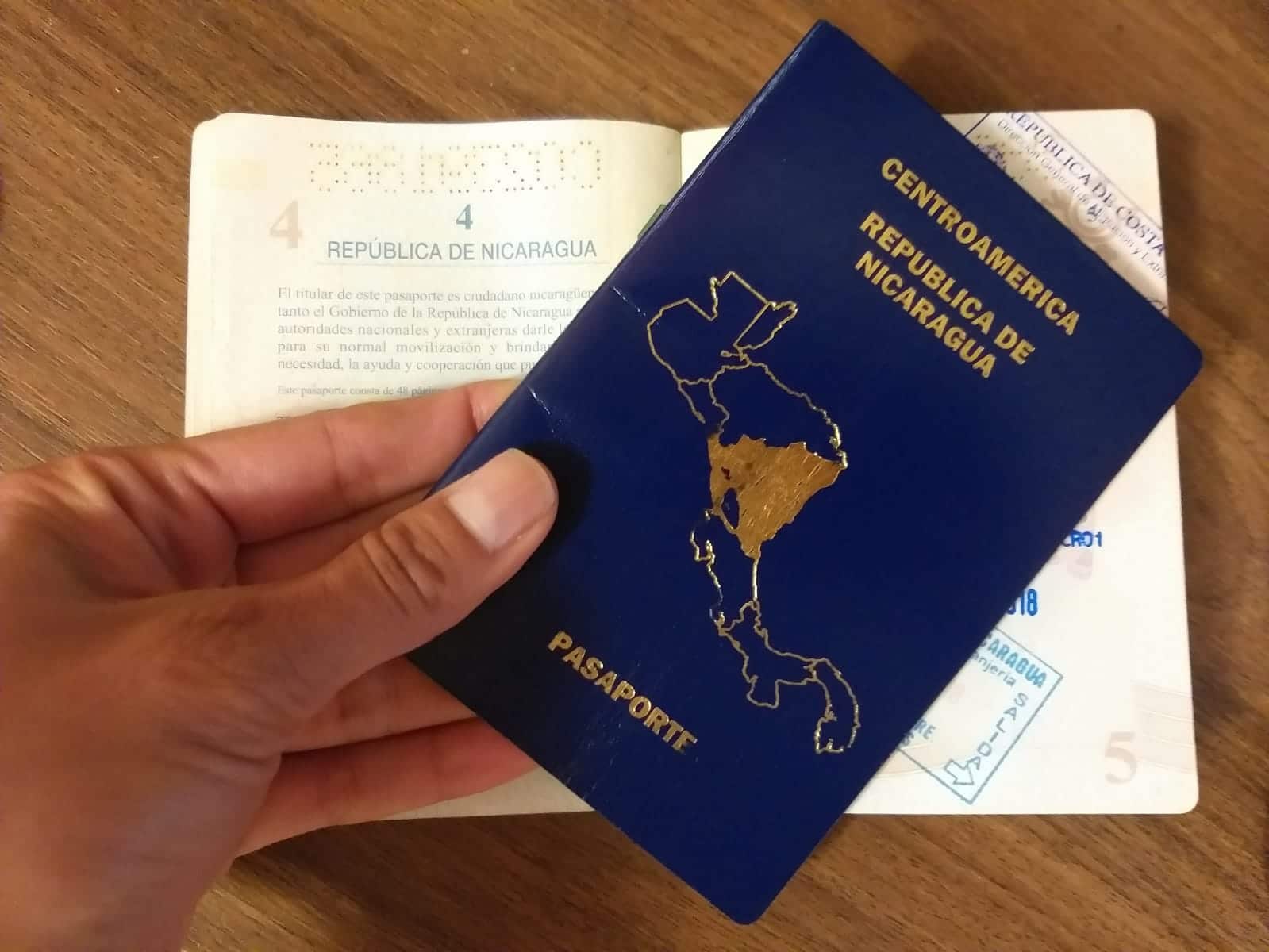4 de diciembre 2020

Nicaragua: Public Employees Hindered from Traveling to USA

PUBLICIDAD 1M
PUBLICIDAD 4D
PUBLICIDAD 5D
Half of the funds must be used for health and food, executed by UN agencies, and subject to full audit

Half of the funds given by the International Monetary Fund (IMF) must be used for health and food
The Executive Board of the International Monetary Fund (IMF) approved the delivery of 185.3 million dollars as "emergency financial assistance" to the Government of Daniel Ortega, which will help balance the accounts of the regime, affected by the covid-19 pandemic. Half of the funds will be managed by two agencies from the United Nations system.
This is the first time that the Ortega Administration has received the support of this magnitude to face the expenses derived from the pandemic. While in April the government requested resources from various multilateral organizations - including 26.1 million from the World Bank (WB) and the Central American Bank for Economic Integration (CABEI) - neighbors in the region counted loans in the hundreds of millions.
The two agencies are the United Nations Office for Project Services (Unops) and the World Food Program (WFP), "which will help the transparent execution of specific expenditures," the Fund said in a statement released on the afternoon of this Friday.
The detail indicates that "Unops will help with the execution of health spending, while WFP will launch an emergency agricultural support program to guarantee an adequate supply of food." It is also specified that "all expenses related to covid-19 will be subject to an independent external audit within a year."
The Board of the Monetary Fund was convinced to approve this emergency sum, arguing that “the authorities have taken important measures to improve fiscal transparency, especially related to covid-19 spending. The Ministry of Finance has begun to publish the details of all expenses related to covid-19 and of all public contracts, on its website”.
Mitsuhiro Furusawa, deputy managing director and interim president of the IMF, assured that the government of Nicaragua had committed to “making continuous efforts to undertake structural reforms in the medium term, including the strengthening of governance and transparency, and the fight against corruption.”
An economist who agreed to speak to CONFIDENCIAL under the condition of anonymity said that before the disbursement of these resources was approved, the only possibility that the government had in order to be able to cover the massive deficits of the INSS and other public sector entities, was to withdraw funds from their deposits in the Central Bank, “which would cause a very sharp drop in international reserves”.
With these funds and those of the CABEI [although he also foresees that the Inter-American Development Bank (IDB) and the World Bank (WB) are willing to make their own contributions] the government will not only be able to allocate resources for reconstruction, but to preserve international reserves and sustain its fundamental priorities, such as maintaining the payroll, its prioritized operating expenses and its repressive apparatuses.”
On Monday, November 16, CABEI announced the preparation of the Central American Resilient Reconstruction Program, with an available amount of $ 2.5 billion, available to countries that request it, so that diligent management of resources could generate another 300 to 400 million dollars to the coffers of the regime.
"Reconstruction spending will help cushion the downturn in the economy," the expert said, referencing how the post-Mitch reconstruction funds produced an economic boom. “In this case, at least they will cushion the economic decline,” he said.
In an entry on his profile on the social network LinkedIn, Manuel Coronel Jr., advisor to the executive director of the IMF, said that the resources approved by that entity, together with the support of other international financial institutions, “will help Nicaragua cove the gap in the country’s balance of payments for 2020, minimizing the use of the Central Bank’s international reserves”.
"The disbursement focuses on the health and economic response to COVID-19, mainly on basic needs such as the capacity of health services, food security and the affordability of water supply to its citizens,” he added.
The Fund's forecasts show the ways in which the pandemic extended over time, and the recession into which the Nicaraguan economy fell after the government of Daniel Ortega ordered the repression of the citizens who demanded a return to the path of democracy, justice, and freedom in 2018.
The IMF's initial calculations indicated that the Nicaraguan gross domestic product would decline at a rate of -1.2%. When the world fell into fear generated by the spread of the SARS-CoV-2 virus, that estimate fell up to 5.5%, which expresses a variation of 4.3 percentage points.
This is explained, in part, by the fall of 1078 million dollars after four sources of external resources: exports, tourism, remittances, and direct foreign investment, decreased due to the global health crisis which was exacerbated in the Nicaraguan case by the decision of the government of Daniel Ortega not to seek a negotiated solution to the political problem that afflicts the nation.
The Fund's forecasts indicate that the number of exports expected for this year was reduced by 325 million dollars (-9.2%), going from the expected 3,531 million to an updated projection of 3206 million.
Covid-19 also shrunk tourism revenue, which was pegged at $ 393 million, and plummeted by $ 212 million, to $ 181 million.
Remittances would also have a significant drop (-334 million, or -19.9%), foreseeing that the accumulated total for the year will be 1,344 million, instead of 1,677 million. Other projections suggest that the variation in the number of remittances will be much smaller.
Finally, the foreign direct investment will no longer mean an income of 327 million, as was expected at the beginning of the year, and will remain at 119 million. The difference of 207 million represents a drop of 63.3% in the year.
Between January and October 2020, adjusted net international reserves (RINA), rose by 227.3 million dollars, going from 1,374.4 million to 1601.7 million.
This article has been translated by Ana Maria Sampson, a Communication Science student at the University of Amsterdam and member of our staff*
PUBLICIDAD 3M
Periodista nicaragüense, exiliado en Costa Rica. Durante más de veinte años se ha desempeñado en CONFIDENCIAL como periodista de Economía. Antes trabajó en el semanario La Crónica, el diario La Prensa y El Nuevo Diario. Además, ha publicado en el Diario de Hoy, de El Salvador. Ha ganado en dos ocasiones el Premio a la Excelencia en Periodismo Pedro Joaquín Chamorro Cardenal, en Nicaragua.
PUBLICIDAD 3D